Americans Waiting to Evacuate Israel by Sea Hope for Safety
Roughly 500,000 American citizens live in Israel, and the crowd at the port of Haifa represents only a tiny fraction of that.
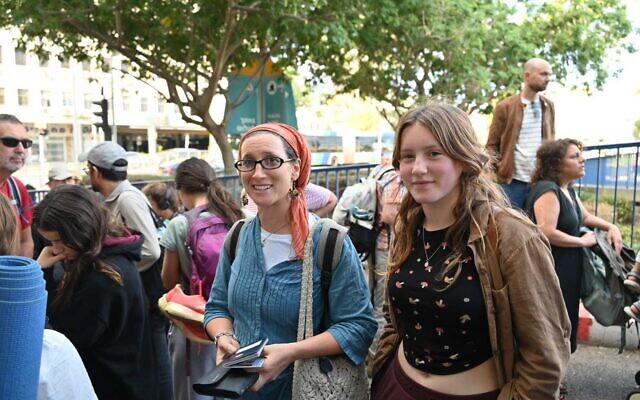
HAIFA (JTA) — Before boarding a ship departing from Israel, Ariela Keshet explained that she has attended three funerals this week — two for soldiers killed in Israel’s war with Hamas, and one for a victim of the terror group’s massacre at an outdoor music festival.
Now, she is welcoming the chance to leave for Cyprus, where the family will take refuge before returning to their home in the Golan Heights, close to Israel’s borders with Syria and Lebanon.
“It has been stressful, especially for people who have lived here before with rockets,” she said, explaining that in 2006, during Israel’s war with Lebanon, she lived in Tzfat — another northern city close to the border. “It was traumatic — I’d rather not relive that,” she said.
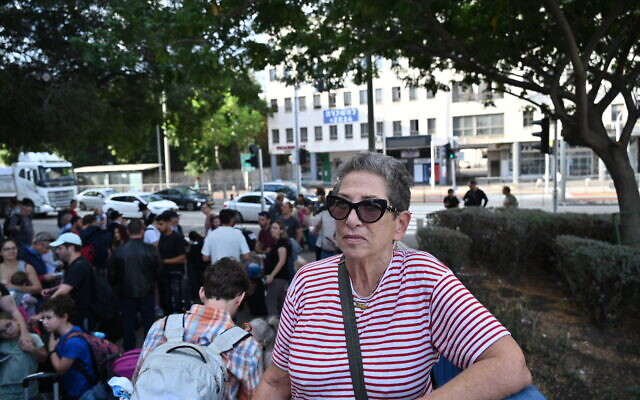
But Keshet added that “within one family, you can have all of those different levels of concern” — and hers is no exception.
“I don’t want to go. I think it is wrong to leave our country and my brother agrees with me,” her daughter, Emunah, 14, protested as the family prepared to board.
The family was among hundreds of Israeli and Palestinian Americans, along with other U.S. citizens who happened to be in Israel when Hamas attacked, to wait in line for hours to board a boat evacuating U.S. citizens and their family members from the embattled country as it prepares to ramp up its war with Hamas in Gaza.
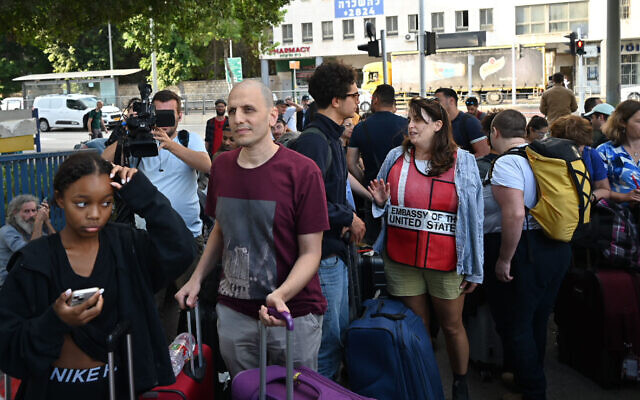
The U.S. embassy announced the rare step late of Saturday, instructing Americans to get to the Haifa port by 9 a.m. Monday with a maximum of one piece of luggage, a carry-on and no pets. Passengers had to promise to pay back the as-yet-undetermined cost of the trip and where they went from Cyprus after the roughly 12-hour journey would be up to them.
The boat left at 3 p.m., six hours after citizens were asked to arrive at the port.
In line at the Haifa port’s terminal, a mix of English, Hebrew, Arabic and Russian could be overheard. For Kristen, Sandy and Debby, three American Christians caught in Israel at the wrong time, the trip to Cyprus is an “unexpected adventure” to conclude an unforgettable vacation. “We are praying for peace and the safety for everyone living here,” said Kristen, who is from Arizona and declined to give her last name.
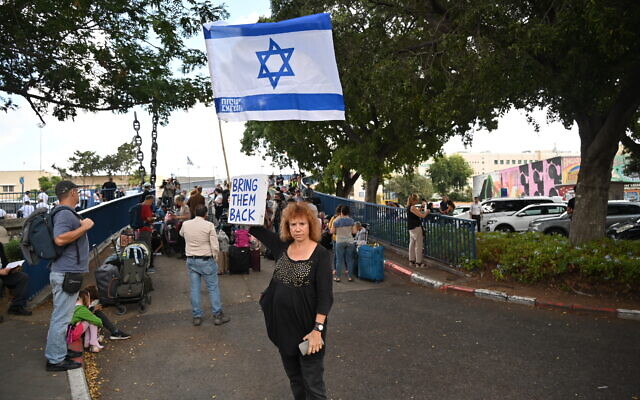
Roughly 500,000 American citizens live in Israel, and the crowd at the port represented only a tiny fraction of that. Many are choosing to stay and join in the effort to support the war and the people and communities affected by Hamas’ attack, which has transformed Israel into a country of volunteers.
Cheryl Rosenberg, 31, for example, told JTA that she did not consider leaving because she felt loyal to Israel during a time of crisis. (She also noted that the embassy didn’t say how much the trip would cost.) “This is our home and I don’t want to run away,” she said. “I want to do what I can to help.”
Scott, a 25-year-old Christian Palestinian-American from Minnesota who also declined to share his last name, arrived at the Haifa port at 1 a.m. after abruptly leaving Bethlehem in the West Bank, where he has studied Arabic for the past few months.
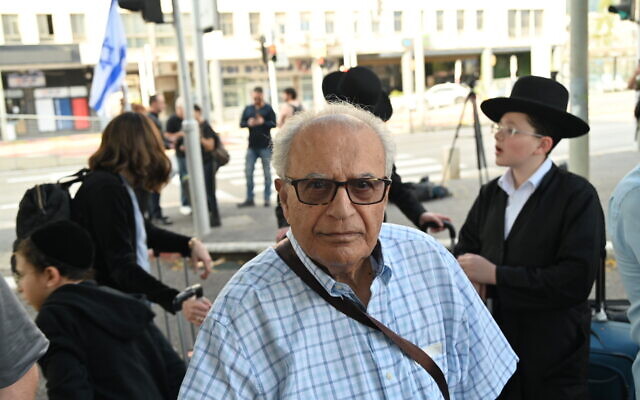
“The streets are empty in Bethlehem and the main road is blocked off. The Arabic program moved online but most of the students left the program,” he said. “Everyone in the West Bank is treating it like the weather. If you are hit by a snowstorm, you go to the store and prepare for the worst, but nobody has control over the weather.”
While the United States has offered pathways for its citizens to leave Israel and Palestinian areas, and has sent aid to Israel, Scott said he thought Palestinians are not being sufficiently protected and criticized the United States’ approach to the conflict.
“They said they want to bring in these big boats to deter any violence,” he said, referring to aircraft carriers the United States has moved to the eastern Mediterranean as a warning to nearby countries not to get involved in the war. “But what about the violence in Gaza? Is one more important than the other?”
That criticism did not stop Scott from striking up a friendship with Tony Wolf, 30, an Israeli-American pharmacist from the central city of Kfar Saba who arrived an hour later than him.
“When a Palestinian and a Jewish person meet, we are friends with a similar culture. We have no problems when politics are aside,” Wolf said, adding that he needs “to clear out” his mind. He said he was traumatized by the death of “a lot of my friends who were killed in the army and party and rescue missions.”
For some passengers, the journey was fraught with emotional pain. Alan Cohen, a 56-year-old Israeli-American English teacher who grew up in Israel and served in its military, said the war was the last straw before making the painful decision to “leave behind all my possessions” and leave the country “heartbroken and regretting it.”
“Everything here [was] extremely difficult and frustrating” even prior to the war, Cohen said, adding, “If the war was not happening I would be leaving anyways.”
Cohen said that he has had difficulty obtaining a pension in Israel and plans to teach at a Hebrew school in Massachusetts, where he will “tell the truth about Israel” and the challenges new immigrants face.
“If anybody wants to make aliyah and come here, I say don’t,” he said, using the Hebrew term for Jewish immigration to Israel. “I really do not know if I will come back or not. Come back to what?”



comments